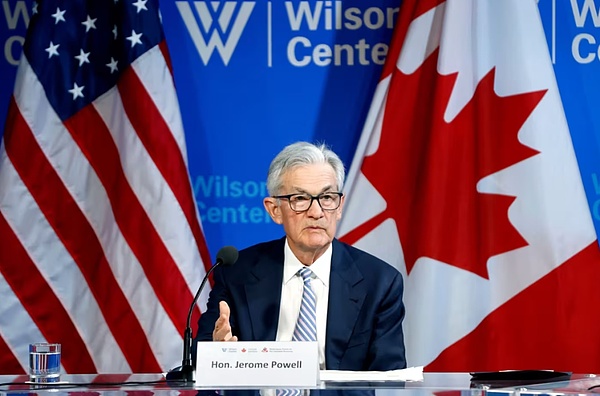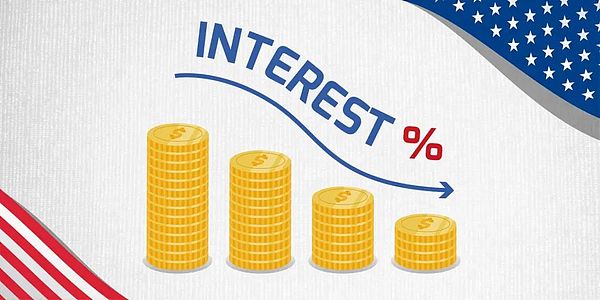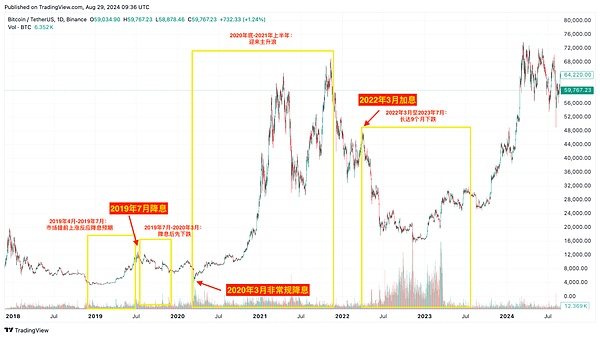Federal Reserve Chairman Powell recently said that "the time has come to adjust policy," suggesting that a rate cut is coming.
Will the Fed’s rate cut necessarily drive up Bitcoin prices?
Will the crypto market definitely benefit from rate cuts?
This article will delve into this issue and analyze how the Fed’s interest rate cuts affect the rise in Bitcoin prices, as well as the risks that need to be paid attention to.

0 1Purpose and background of interest rate cut
The main purpose of the Fed's interest rate cut is to reduce borrowing costs and stimulate economic activity. In recent years, factors such as inflationary pressure, global trade frictions, and the COVID-19 pandemic have made the Fed more cautious in monetary policy. Interest rate cuts usually occur when economic growth slows or faces the risk of recession. To this end, we need to understand the following two concepts:
Slowing economic growth: When economic growth slows, business and consumer confidence declines, and the willingness to invest and consume weakens. The Federal Reserve reduces borrowing costs by cutting interest rates, encouraging investment and consumption, and thus promoting economic recovery.
Inflation expectations: Interest rate cuts may trigger rising inflation expectations. When facing inflation risks, investors often seek inflation-resistant assets, such as cryptocurrencies such as Bitcoin.
0 2 Interest rate cuts are a positive factor for the rise in Bitcoin prices
Historical data shows that Federal Reserve rate cuts typically help drive up Bitcoin prices.
The reason is simple. Interest rate cuts reduce the cost of capital, encouraging investors to invest their funds in high-risk, high-return assets such as Bitcoin.

Therefore, the positive factors of interest rate cuts for Bitcoin mainly include:
Stimulating investment: Investors tend to seek higher returns in a low-interest rate environment, driving up Bitcoin prices.
Improve market sentiment: The interest rate cut is aimed at stimulating economic growth and promoting economic recovery, which sends a positive policy signal from the Federal Reserve. It makes investors more willing to take risks and prompts more funds to flow into Bitcoin.
Pushing up Bitcoin's anti-inflation characteristics: Interest rate cuts may lead to lower returns on traditional safe-haven assets, which will lead to higher inflation expectations, making Bitcoin's anti-inflation characteristics as digital gold more obvious. Many investors may see Bitcoin as a tool to fight inflation, thereby driving up its demand and price.
Increase market liquidity: The loose monetary policy brought about by interest rate cuts increases market liquidity, making it easier for investors to enter the market and driving up Bitcoin prices.
0 3 Historical Cases of the Federal Reserve Influencing Bitcoin Prices
First, let’s review the recent interest rate cut/hike cycles.

From December 2018 to July 2019, the price of BTC rose from $3,000 to $13,000. The Federal Reserve began to cut interest rates in July 2019, and the market began to react to the expectation of rate cuts in April 2019.
From July 2019 to March 2020, despite the Fed's interest rate cuts, Bitcoin prices fell first and then rose. After the rate cut, Bitcoin prices fell from $13,000 to $7,000, a drop of more than 30%. The price fluctuations during this period reflected the market's different interpretations of the rate cuts, showing that rate cuts do not always bring immediate positive market reactions.
In March 2020, affected by the COVID-19 pandemic, the Federal Reserve quickly cut interest rates and launched large-scale quantitative easing. The market lagged slightly and ushered in the main uptrend at the end of 2020 and the beginning of 2021. In this cycle, the price of Bitcoin rose from US$3,000 to US$65,000.
During the interest rate hike cycle from March 2022 to July 2023, the price of Bitcoin fell from a low of $45,000 to $15,000, a nine-month decline. The performance of this stage shows that the market is more sensitive to interest rate hikes, and expectations of interest rate cuts did not appear before prices rebounded.
Therefore, according to historical circumstances, the market reaction after the rate cut may be early or delayed, and in most cases it is good for Bitcoin to rise. It should be noted that in a few cases the market may face selling pressure, leading to a decline, which may show a decline first and then rise.
0 4Bitcoin is under selling pressure
If the rate cut is due to signs of a recession, the market may be pessimistic about the future economic outlook. In this case, investors may choose safe-haven assets instead of Bitcoin. Although Bitcoin is regarded as digital gold, during a recession, investors may prefer traditional safe-haven assets such as gold, resulting in a decline in Bitcoin demand. In addition, uncertainty in regulatory policies and black swan events with wide influence will also affect the effect of rate cuts. These situations may lead to selling pressure in the market.
0 5 Summary
After the launch of spot ETFs, the impact of US dollar liquidity on the crypto market will become increasingly apparent, but the impact of the Fed’s interest rate cut on Bitcoin prices is complicated.
The market reaction to the rate cut may be ahead of schedule or delayed, and is affected by a variety of factors. It should be noted that in some cases, such as concerns about economic recession, uncertainty in regulatory policies, and reversals in market sentiment, Bitcoin may face a certain amount of selling pressure.
What’s more, the Federal Reserve’s monetary policy is an important factor affecting the price of Bitcoin, but it is not the only factor. Therefore, we should pay close attention to various market factors in order to make rational investment decisions.







